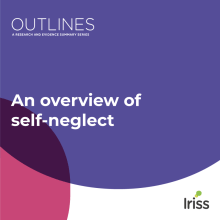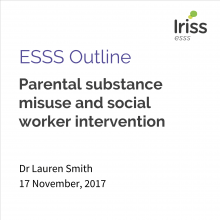What is self-care?
There are many definitions of self-care posited, one of the most recognised being from the World Health Organisation (WHO) that dates back to 1983. A more recent definition from the Department of Health (2005) covers the main tenets:
Self-care is a part of daily living. It is the care taken by individuals towards their own health and well being, and includes the care extended to their children, family, friends and others in neighbourhoods and local communities. Self-care includes the actions individuals and carers take for themselves, their children, their families and others to stay fit and maintain good physical and mental health.
Why is it important?
Embedding self-care in daily life helps to reduce anxiety, stress and ultimately burn-out. It supports improved quality of life, physical and mental wellbeing, and achieving a healthy work / life balance. Although self-care sounds like it is solely for the individual, it is actually often about connections with others and highlights the value of relationships.
The roots of self-care can be traced back to the writings of Socrates and Plato and the belief that caring for the self was to exhibit an attitude, not only toward oneself, but also toward others and the world. The French philosopher, Michel Foucault, writes that it is imperative to ‘permit individuals to effect by their own means, or with the help of others, a certain number of operations on their own bodies and souls, thoughts, conduct, and way of being, so as to transform themselves in order to attain a certain state of happiness’...and that understanding should project into our wider interactions, relationships and society.
Therefore, self-care should not be superficial, but based within a moral and ethical understanding. It can also be transformative. Audre Lorde wrote that 'Caring for myself is not self-indulgence, it is self-preservation, and that is an act of political warfare.' (A Burst of Light, 1988). She meant that caring for yourself became a way of preserving yourself in a world that can be hostile. In social services it may be looking after yourself, to make sure that you are well enough to continue to provide care for those you support. Self-care, therefore ,gets more important for your wellbeing at the times where it may be easier for it to be forgotten. It is also important to acknowledge that self-care sits in a systems context, one that is hugely influenced by other factors, especially job design/role, organisational culture and personal circumstances.
What does it look like?
Self-care will look different from person-to-person. It is a broad concept that encompasses activities that can be deliberately undertaken in order to take care of mental, emotional or physical health. There are a number of guidelines that look at self-care through a very health-focused lens. For example, the International Self-care Foundation has created a framework organised around seven ‘pillars’: health literacy; self-awareness; physical activity; healthy eating; risk mitigation; food hygiene. Others take a more holistic approach, for example, the self-care wheel encourages people to examine aspects of their own care in six categories: physical; psychological; emotional; spiritual; personal and professional. Activities can be fundamental, such as practising meditation or planning life goals, or simple, such as having coffee with a friend, or deliberately spending time away from a screen.
What does this mean for me?
Children and families social worker, North Ayrshire Council
I’ve never really thought about what I do as self-care, but there were things I learned as a student social worker that stuck over the last 10 years, then other things I try and keep up to help myself. I’ve worked with children and families for almost all that time, and it is so easy to become overwhelmed by the emotional effort of the work. There are situations you get more experienced in, which makes things easier, but it is really hard to switch off. I do some activities most days that I fold into my routine. I go to an evening exercise with a colleague (cross-fit) - we do it together and if I didn't have her I’m not sure I’d be motivated enough to keep it up! I use a mindfulness app that reminds me every night at 9pm to do a quick 10 minute body scan or some breathing exercises.
I have a partner and toddler so between work and family life I have to deliberately carve out time for myself. If not, I do feel myself becoming impatient. This might be to see friends for a night out, or to head out on a date night, but most often it is phone calls to my mum. There’s also things I’ve stopped. It sounds a bit cliched, but I say no to extra things that used to take up time, whether it be at work or at home.
I am now a team manager, and know how much work my team have to juggle, so I make sure we have time to catch-up and just talk. We try and meet-up in person, or by video, at least once a week to sit and have a coffee and talk about what has been going well, or let-off about what hasn’t! It’s really informal but helps me/us from holding that in. I try and protect space to make time to be available to the team to talk things through on a one-to-one basis. This helps me know what I can help with, but I really hope it helps them to either get things off their chest, or to think something through by speaking.
I have learned that all these things need upkeep, and sometimes, when it is a tough time at work some things begin to drop off, but it’s usually at those times that exercise/chats/relaxation would be most helpful for me.
Further information and resources
Miller SE (2013) A self-care framework for social workers: building a strong foundation for practice. Families in Society: The Journal of Contemporary Human Services, 94, 2, 96-103.
Mind - Resources to improve mental well-being
University of Buffalo - Self-care information and resources
University of South Carolina - How social workers can prioritize self-care in high-stress working environments



